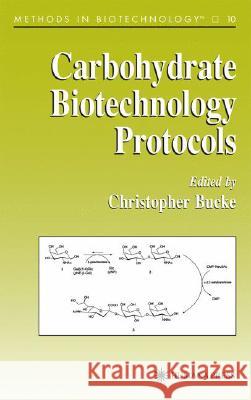Carbohydrate Biotechnology Protocols » książka
Carbohydrate Biotechnology Protocols
ISBN-13: 9780896035638 / Angielski / Twarda / 1999 / 337 str.
We are in a phase of the evolution of biotechnology in which the true and potential commercial importance of carbohydrates is becoming appre- ated more fully. Progress in providing hard facts to establish the commercial value ofpolysaccharides and oligosaccharides is limited, as always, by lack of funding and by a relative shortage of skilled practitioners in the production and analysis of those materials. Carbohydrate science has a reputation, not unmerited, for technical difficulty owing to the structural similarity of the many monosaccharide monomers and the potential, and real, complexity of oligosaccharides and polysaccharides, particularly heterosaccharides conta- ing many different monomers. Modem analytical and synthetic methods, in many cases using enzyme technology, are beginning to allow this complexity to be unraveled. Carbohydrate Biotechnology Protocols is aimed at those newcomers who have an interest in the production and use of carbohydrate materials, but have shied away from involvement for lack of detailed descriptions of appropriate methods, including the type of practical hints that may be provided by those skilled in those methods, but that are rarely described in research papers. The majority of the contributions to this book conform to the established format of the Methods in Biotechnology series. They begin with the theoretical and c- mercial background to the method or group of methods, provide a list of the reagents and equipment required for the procedure, then give a detailed st- by-step description of how to carry out the protocol.











